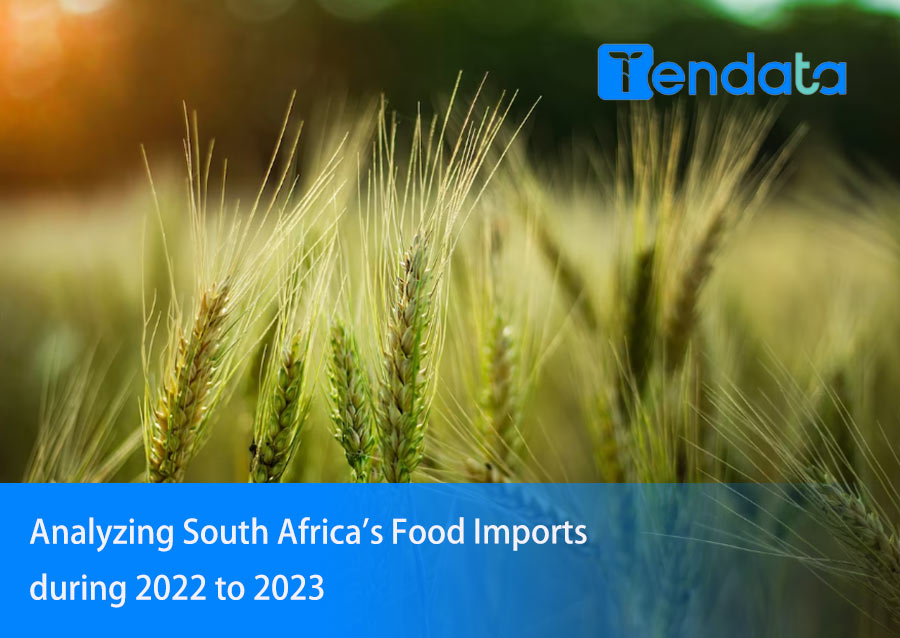 Import News
Import News
 2024-01-10
2024-01-10

South Africa possesses a large population, close ties with the West, and robust infrastructure. The growing middle class and high-income earners are positively impacting South Africa's imports, primarily in vegetables, meats, and grains (especially rice).
Over the past five years, South Africa's average food imports amounted to $6.6 billion. In 2022, the key import products were rice, palm oil, wheat, poultry, and whiskey. The top five food-supplying countries to South Africa were China, the United States, Argentina, Germany, and the United Kingdom. These primarily originated from Asia, the European Union, the UK, and the Americas.
In recent years, over 45% of South Africa's total imports came from Asian countries. European trade partners contributed 31.5% of South Africa's imported goods, while approximately 12% in value originated from other African nations. North American exporters accounted for 7.6% of South Africa's imports. Around 2.3% of food imports came from Latin America (excluding Mexico), and 1.3% from Oceania, led by Australia.
1. Grain Imports
In this category, South Africa's main imports include wheat, rice, and maize. The increasing demand for wheat is seldom met by local production, which usually covers only half of the demand.
The Russian Federation is South Africa's largest wheat supplier, holding a 29% share, followed by Germany, Romania, the Czech Republic, and Ukraine with shares of 17%, 10.2%, 10.1%, and 7.6%, respectively.
Maize is South Africa's major locally produced crop and export product, but the country also imports it. Turkey, India, and Italy are the major suppliers of maize starch.
Rice is also a top import product as it is not locally produced. In 2022, South Africa imported 1.1 million tons of rice, primarily from Thailand, followed by India, Pakistan, Vietnam, and Brazil.
South Africa is expected to import approximately 2.7 million tons of grains in 2023, mainly comprising rice and wheat. This figure is slightly higher than the five-year average. Specifically, due to a decrease in production in 2023, wheat imports are estimated to reach around 1.7 million tons, a slight increase from the previous year.
2. Meat Imports
In 2022, South Africa's meat production was estimated at 3.5 million tons, while meat imports amounted to approximately 475,000 tons. Concerning pork, South Africa imported 38.4% of pork products from Germany, followed by 24.9% from Spain and 10.9% from Brazil.
3. Vegetables and Sugar
The country's demand for fresh vegetables and nuts continues to grow, especially for tomatoes, onions, green peppers, and other green vegetables. Major suppliers include India, Nigeria, and Germany.
Although South Africa was once considered a promising source for the world's sugar supply, the product now relies on imports. The main sources for sugar imports are Thailand, Brazil, and France.
Category
Leave Message for Demo Request or Questions


 T-info
T-info T-discovery
T-discovery

 My
Tendata
My
Tendata Market Analysis
Market Analysis Customer
Development
Customer
Development Competitor
Monitoring
Competitor
Monitoring Customer Relationship
Customer Relationship





































































































































